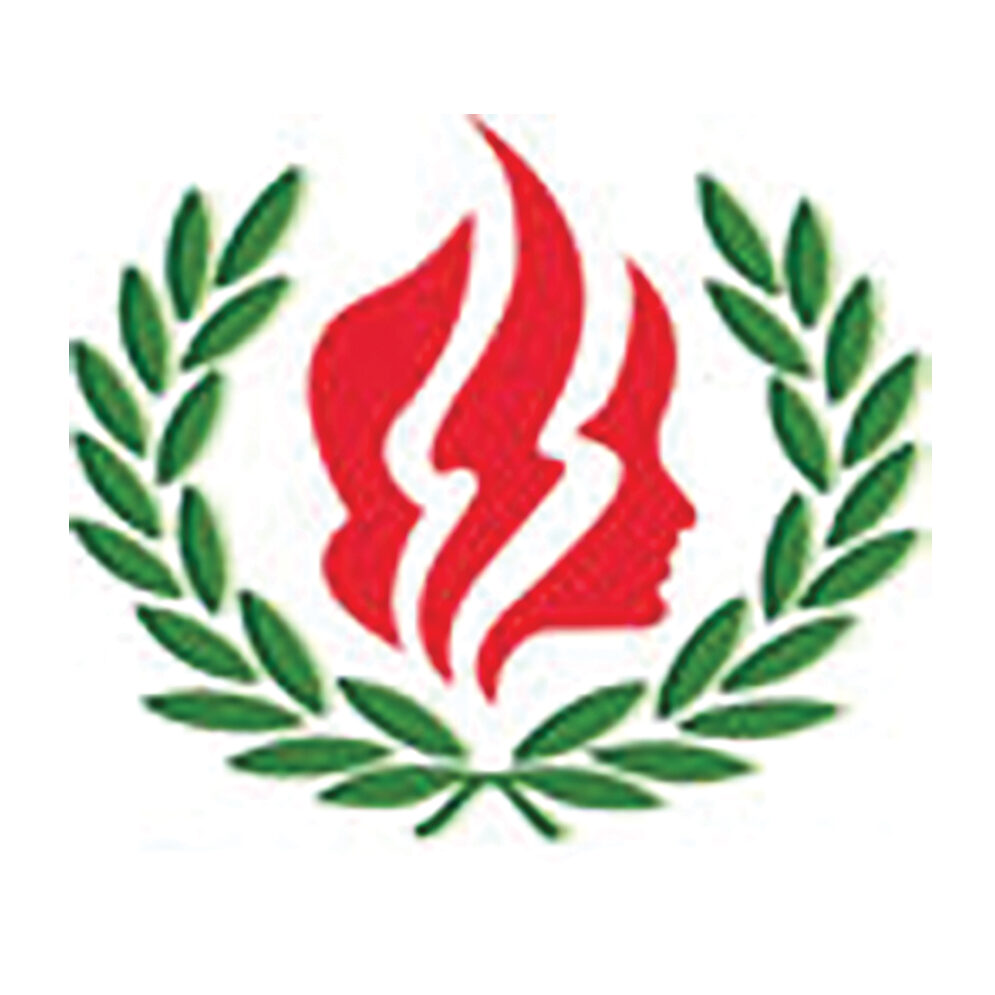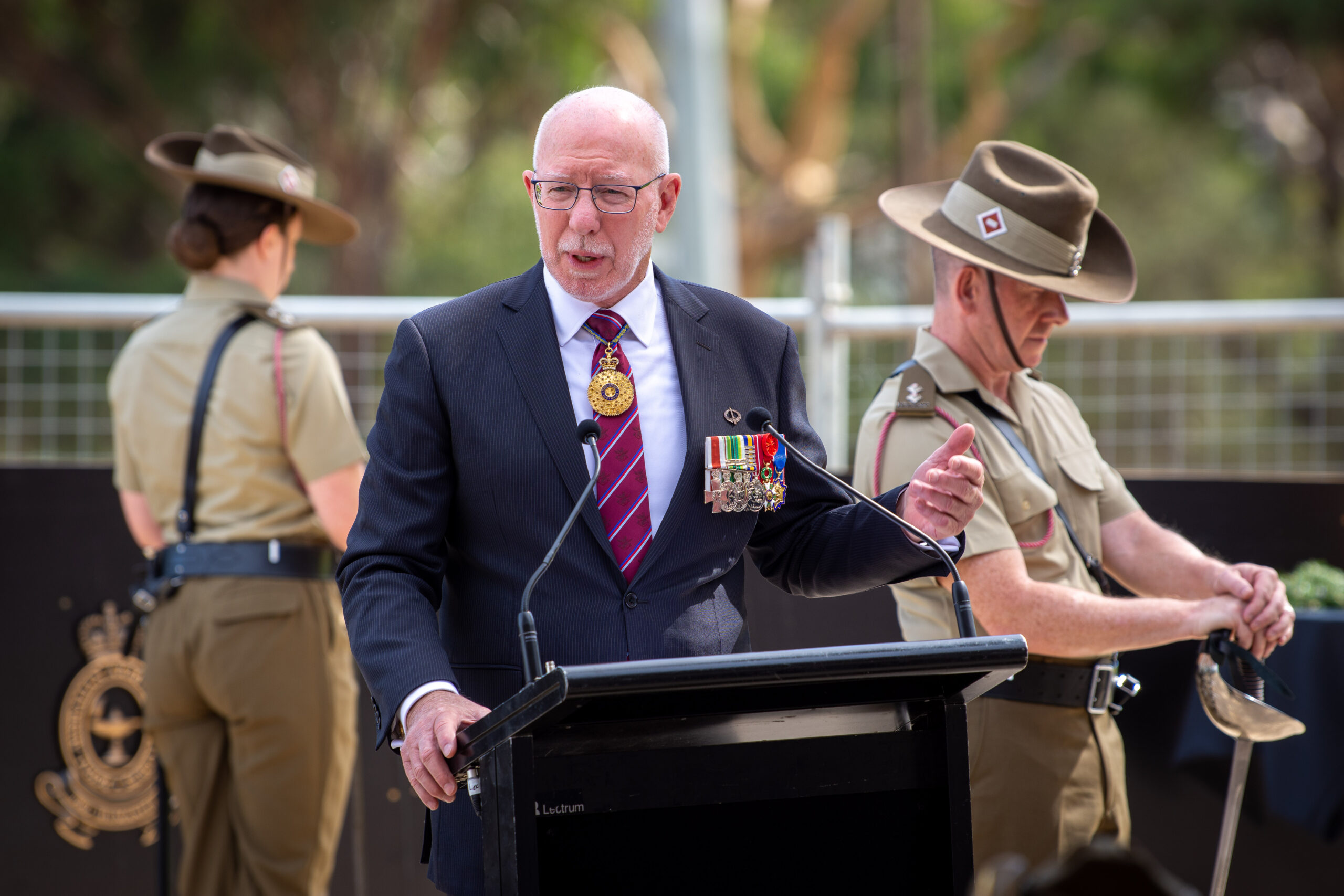I acknowledge the traditional owners of the land on which we meet, the Kaurna People of the Adelaide Plains, and pay my respects to their elders past and present, emerging leaders and all Aboriginal and Torres Strait Islanders gathered here today.
Good morning.
It is a great privilege for Linda and me to be here this morning at the Bangka Day Memorial Service and to remember the 22 Australian Army Nurses who, 80 years ago, were machine gunned by soldiers of the Imperial Japanese Army on Radji Beach in the Indonesian archipelago.
This Service is an important occasion to remember and honour the service and sacrifice of those nurses, indeed all Australian women who have served our nation in conflicts and on operations both here and overseas.
I want to particularly acknowledge the South Australian Women’s Memorial Playing Fields Trust, who, for nearly 70 years, have hosted this service and advocated on behalf of women and girls. Thank you for what you have done. I congratulate the Trust on today’s inauguration of a new memorial, the largest of its kind in the Southern Hemisphere. That is a statement of how important and significant this memorial is.
When I looked at a survey result last week that was published by Deakin University it made me wonder about the importance of history again. The survey found that about 25 per cent of the surveyed participants, about 3,500 people, had no or little factual knowledge of the Holocaust. Twenty-five per cent of the participants had no idea that six million people had been killed, murdered, in one of the greatest atrocities in human history. That worried me. Are we going through a period of historical amnesia where we don’t understand our past?
In a period now where the concept of identity has been weaponised, I think it is really dangerous if we don’t remember our history – what has shaped us, what drives us, what gives us character. Today, the importance of remembering this event is absolutely critical.
Because in remembering this event we are learning and thinking about who we are as Australians. Because through these 22 women part of that fabric of Australia has been grown. Twenty-two threads of that national fabric are represented here. Twenty-two threads that tell us who we are, what we stand for, how we go about life and what our values are, are found in these women.
Two of them in particular we remember – Vivian Bullwinkel because her ‘service beyond self’ when she came back for the rest of her life was a fine example to us, and Major Irene Drummond. Her words: ‘Chin up, girls. I’m proud of you and I love you all.’ What does that tell us about us? These days, these values are critical to us.
I find that when I see Irene Drummond’s words I see them played out across Australia. I repeat in many speeches that when Linda and I travel around Australia and go to natural disasters, and believe me there have been a few in the last two years, this is what I see – chin up, be proud, and a love for each other.
At Government House we call that a ‘richness of spirit’ – a richness of spirit in the Australians we meet. We’ve seen it through drought, flood, cyclones, a mouse plague, a pandemic. There is a richness of spirit amongst our people.
How can we ever allow that to be forgotten? How can we allow incidents like the one we are remembering today that help inform who we are to be forgotten? You coming together is so important to get this message out, to keep this history alive. Not because we hate the Japanese – no. Because of what it says about us as people.
You build a strong nation, you have got to go back to your foundations. This is part of the foundation. Thank you, Helen [Fischer, President, South Australian Women’s Memorial Playing Fields Trust], to you and the ladies who, over the years, have said, ‘We realise the importance of this event and what it means to us as a country and what it means to our inner core as Australians.’
The Australians I meet come from all over the world and have created a different nation. We have a big reconciliation task ahead of us. Through that, what these women represent will play an important role.
So, your work in the Trust – history, important; remembrance, particularly important; practical outcomes, with playing fields to bring us together, to keep us fit and healthy; that’s important. Because that all comes together to me to say, ‘This is us’.
We remember and honour the 22 Australian nurses who lost their lives in horrific circumstances. I hope this story resonates. I know it does for this audience but beyond that as we continue to see those qualities displayed both in our nurses – and thank you for being here and what you are doing for our Service today – and our country: compassion, selflessness, loyalty, bravery, honour. What could we ask more than that – from each and every one of us, to be taking as a lesson, for today.
On behalf of all Australians I acknowledge the nurses’ remarkable service. I acknowledge your service, Helen, and those who have come before and those serving today. Thank you for the important work you are doing.
This Memorial is a place to bring children; it is not just a place to come and play games. After the fun and games, it is a place to walk through, to read and to understand, and then to take home. This is us. That is what this memorial says.
Thank you.

